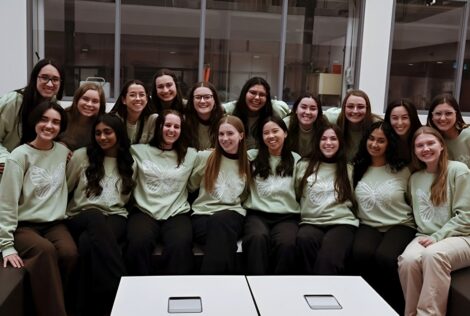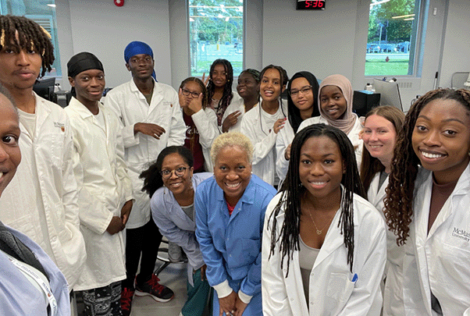
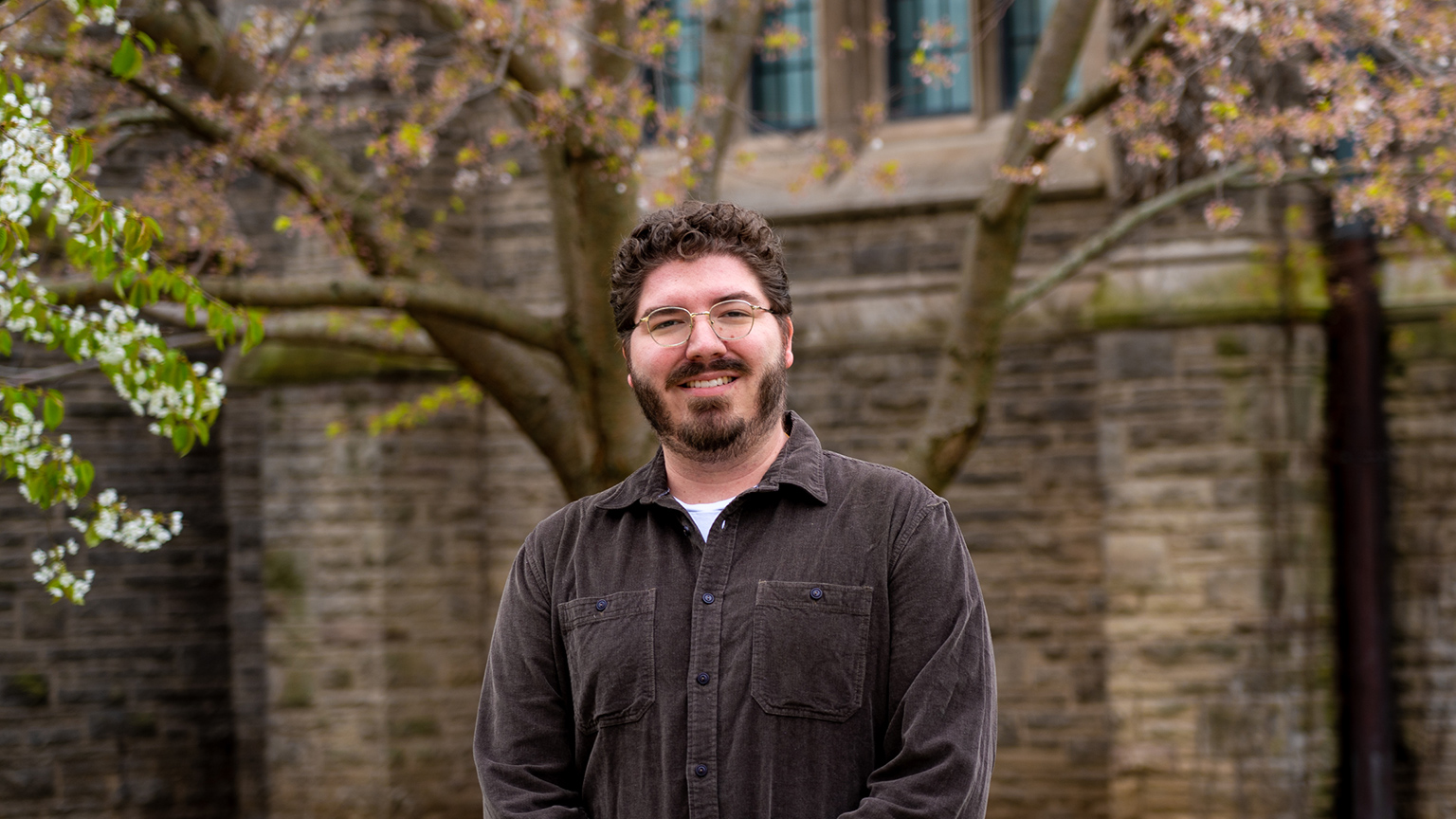
During the six years he spent earning his undergraduate and master’s engineering degrees at McMaster, James LeMoine did not know a single other Indigenous engineering or science student.
Now a PhD student in mechanical engineering, LeMoine is a member of the Anishinaabe from the Mississauga of the Credit First Nation and part of the Migizi (Eagle) clan.
“I knew some people in social sciences or humanities that are also Indigenous but until recently I’ve always been the only Indigenous person I knew of in my stream.”
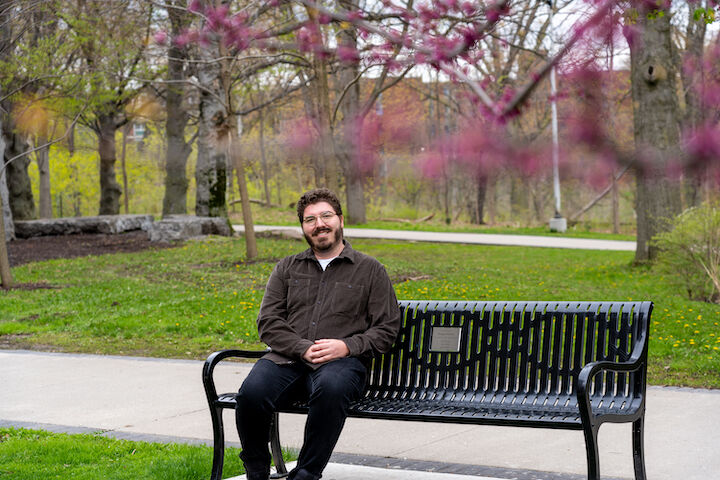
Those lonely days are over, thanks in large part to the Indigenous and Black Engineering and Technology Project (IBET).
Launched in 2021, the program aims to foster equitable and inclusive research and teaching environments by increasing the number of Indigenous and Black academics working in STEM disciplines across Canada.
LeMoine was awarded one of McMaster’s two inaugural IBET Fellowships. Chemical engineering PhD student Adekunle Omoniyi was also a 2021 fellowship recipient. Robert Ngunjiri was selected as McMaster’s 2022 IBET fellow.
For LeMoine, the money – up to $25,000 a year for up to four years – made it much easier for him to commit to a PhD, where he could continue the research into electrohydrodynamics that he’d launched as a master’s student.
“It really allowed me to continue my passion without having to worry too much about the financial side of staying in school versus going and trying to start a career,” he says.
But the biggest impact of the IBET fellowship has been the people it has brought into his life.
The program connects him with a formal mentor but also led to informal connections with other faculty members in engineering and across McMaster more broadly.
“I’m now close with some of the people from the Indigenous Studies department and Indigenous student services, so I have more of a connection with the cultural side of things on campus,” he says.
Those relationships earned him the support he needed to launch a McMaster chapter of the American Indian Science and Engineering Society (AISES) this year. He serves as founding president of the group, which has connected him with a handful of other Indigenous students.
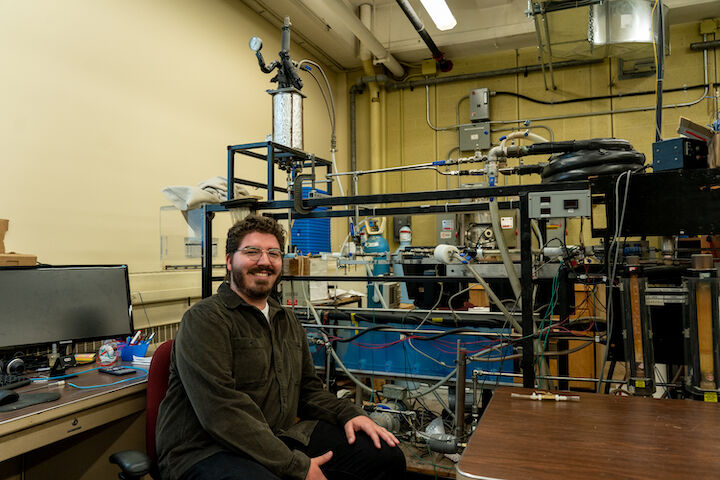
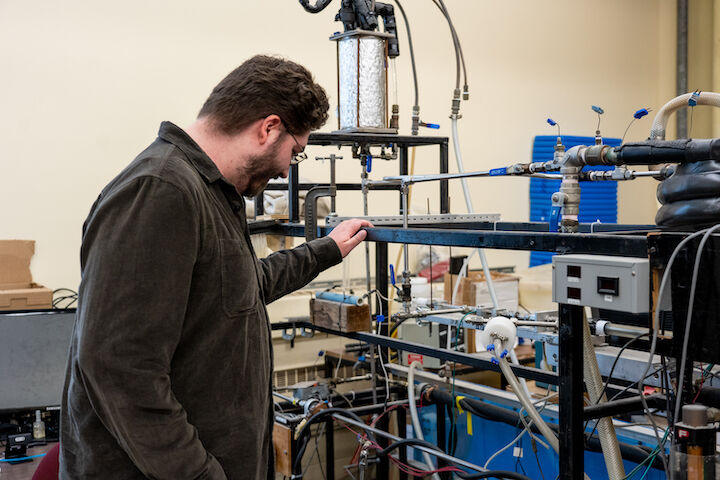
LeMoine has also met Indigenous IBET fellows studying at other Canadian universities, and earlier this spring several of them attended the AISES conference in Vancouver.
“We’ve really started to create this community of Indigenous scientists and engineers so that it feels like it’s not just any one of us that’s trying to go through science or engineering alone – we have others in different levels or different streams that are also interested in the same things that we are,” he says.
“I now have connections with other PhD students from across Canada, and through AISES, we have connections with other schools across both Canada and the US. This has really opened up my world a lot.”
Helping Black and Indigenous students build and strengthen networks is one of the key aims of the IBET project. When it was created as a partnership among Ontario’s six leading engineering and technology faculties in 2021, there were fewer than 15 Indigenous or Black faculty members in engineering fields across the province.
“The lack of a network of support for Indigenous and Black PhD students is one of the challenges that contribute to the underrepresentation of these groups in science, technology, engineering, and mathematics (STEM) programs across the country,” says the organization.
The program has since expanded to 16 universities across Canada. Its latest initiative, the IBET Connect Award, will offer up to 10 IBET fellows the chance to undertake a two- to four-month research project at a partner school.
LeMoine urges anyone eligible to apply for the fellowship. “Everyone I’ve talked to says it’s helped them greatly, so I really enjoy promoting the program and everything it’s done for us.”
The deadline to apply for the 2023 McMaster IBET fellowship is May 31. Details can be found here.

